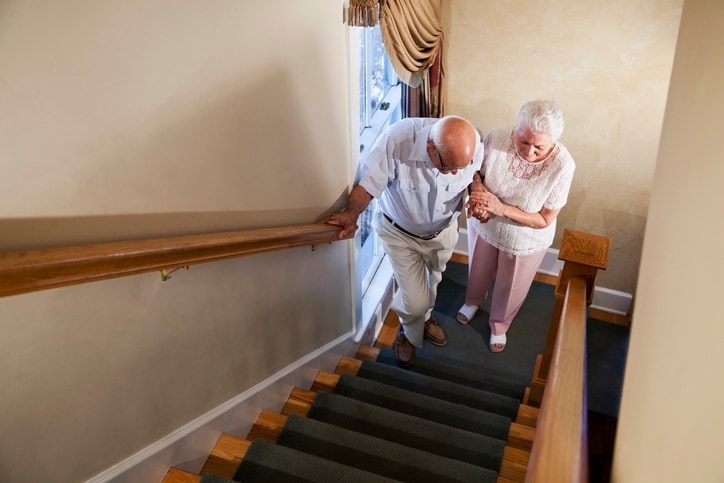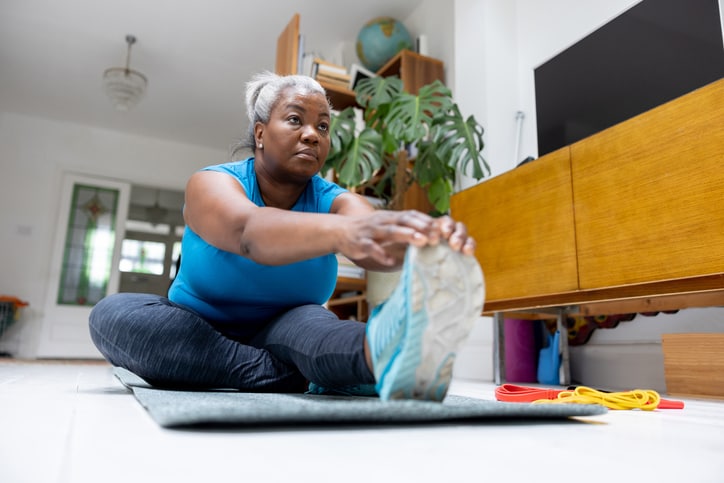As parents age, it’s common for one to require additional help earlier than the other. In cases like these, it may be possible for one parent to help care for their spouse. But what happens when both parents require additional assistance and have varying needs?
In situations like these, one option to consider is hiring a couples caregiver with the skills and experience to help with both sets of needs simultaneously.
“A professional caregiver can provide flexible, tailor-made care and support for a couple in their own home,” explains Stephan Baldwin, director of business development at AssistedLivingCenter.com. “This type of care allows couples to stay together even if one spouse requires more attention or develops a need for a higher level of care later.”
Here’s what to know about hiring a couples caregiver to help with both your aging parent’s needs.
“A senior couples caregiver comes in to bridge the gap and provide care for both partners.”
— NANCY MITCHELL, A REGISTERED NURSE
What is a couples caregiver?
A couples caregiver is typically a health professional hired to assist with the day-to-day needs of an aging couple. “Often, one of the people in the couple reaches the stage where they need assistance while the other tries to accommodate them,” explains Nancy Mitchell, a registered nurse specializing in geriatric care. “Ultimately, a senior couples caregiver comes in to bridge the gap and provide care for both partners (as needed).”
Tasks that a senior couples caregiver can help with include managing prescriptions, monitoring exercise and helping with mobility needs, and household tasks such as preparing meals or doing laundry. Unlike other forms of caregiving, a couples caregiver typically has a medical background or certification (such as a certified nursing assistant or home health aide), which allows them to provide care for those with more advanced needs.
However, couples caregivers can be non-medical if the couple’s needs are more task and socially based. For Mark Van Sickle, a caregiver for a senior couple in their 80s, tasks like grocery shopping, taking them out to dinner and being an active listener for their individual concerns as they age have been common tasks he helps with.
Benefits of hiring a couples caregiver
Hiring a couples caregiver allows aging parents to remain in their homes, as couples caregivers report to private residences once hired. Depending on the needs of both parents, couples caregivers are available full- or part-time.
If one of your senior parents has been caring for the other, hiring a couples caregiver to help with both of their needs can be a big help. Instead of having to focus on providing care for their spouse, this gives aging parents more time to enjoy each other’s company.
With a couples caregiver’s help, aging parents can often remain at home and together for longer. As Baldwin points out, this can be extremely beneficial for aging couples’ overall health and well-being.
“Keeping aging spouses together is critical for their health,” says Baldwin. When a husband or wife goes to a medical facility for full-time care alone, both people suffer negative results to their cognitive and physical health.” A senior couples caregiver that provides care within the home and can tend to the needs of both parents keeps couples together for longer, positively impacting their overall quality of life.
“Keeping aging spouses together is critical for their health,”
— STEPHAN BALDWIN, DIRECTOR OF BUSINESS DEVELOPMENT FOR ASSISTEDLIVINGCENTER.COM
How to hire a couples caregiver
Considering hiring a couples caregiver? Here are a few key steps to take.
Get clear on the needs of both aging parents.
Aging parents may downplay their needs to maintain their independence or to not burden their adult children with the responsibility of providing care for them. If one or both of your aging parent’s needs have evolved to a point where they require care, it’s important to have an honest conversation with both of them and their medical providers on the type of daily care needed.
“Understand specifically what the issues are and what a caregiver can do to help them,” recommends Van Sickle. “What challenges are they going through at this point surrounding their aging process? What are the challenges that they may have surrounding growing older? What are their medical issues, complaints and challenges?”
Mitchell says these considerations are especially important if one or both aging parents are experiencing neurodegenerative issues. “Neurodegenerative conditions are common among older adults, and you’ll want to ensure that the person you hire is equipped with the skills and emotional intelligence to handle cases like yours,” she says.
Consider your search options.
“The three most widely used sources for finding a caregiver are agencies, registries and personal referrals,” Baldwin explains. Working with an agency ensures your caregiver has been pre-screened and will provide backup care if the caregiver is unable to report for work. Agencies often represent a wide roster of caregivers that can handle any situation needed. However, Baldwin cautions that finding a couples caregiver through an agency can be expensive and that there may be minimum requirements for the number of hours worked.
Registries, like Care.com, connect you directly with private caregivers that meet your requirements in your area. Unlike working with an agency, you’ll need to spend time doing the prevetting, paperwork and hiring.
Personal referrals from a trusted friend or family member can reduce search time. “A personal referral from a trusted friend or family member can be great, but it depends on whether or not you know someone currently using a couples caregiver,” says Baldwin.
Ask questions to evaluate candidates.
Once you’ve found candidates to interview, Baldwin recommends asking questions that determine whether or not the caregiver meets the needs of the role, such as:
- How many years of experience do they have as a caregiver?
- Are they insured?
- Do they belong to any professional organizations?
- If you’re working with an agency, are the caregivers full-time employees or contractors?
- Are there backup providers if your regular caregiver becomes unavailable?
- How are needs met outside of business hours?
It’s also crucial that qualified candidates supply senior caregiver references that demonstrate their capability. Baldwin recommends, “Ask for references from current and previous patients to make sure you can trust the person that will have access to your parent’s homes.”





